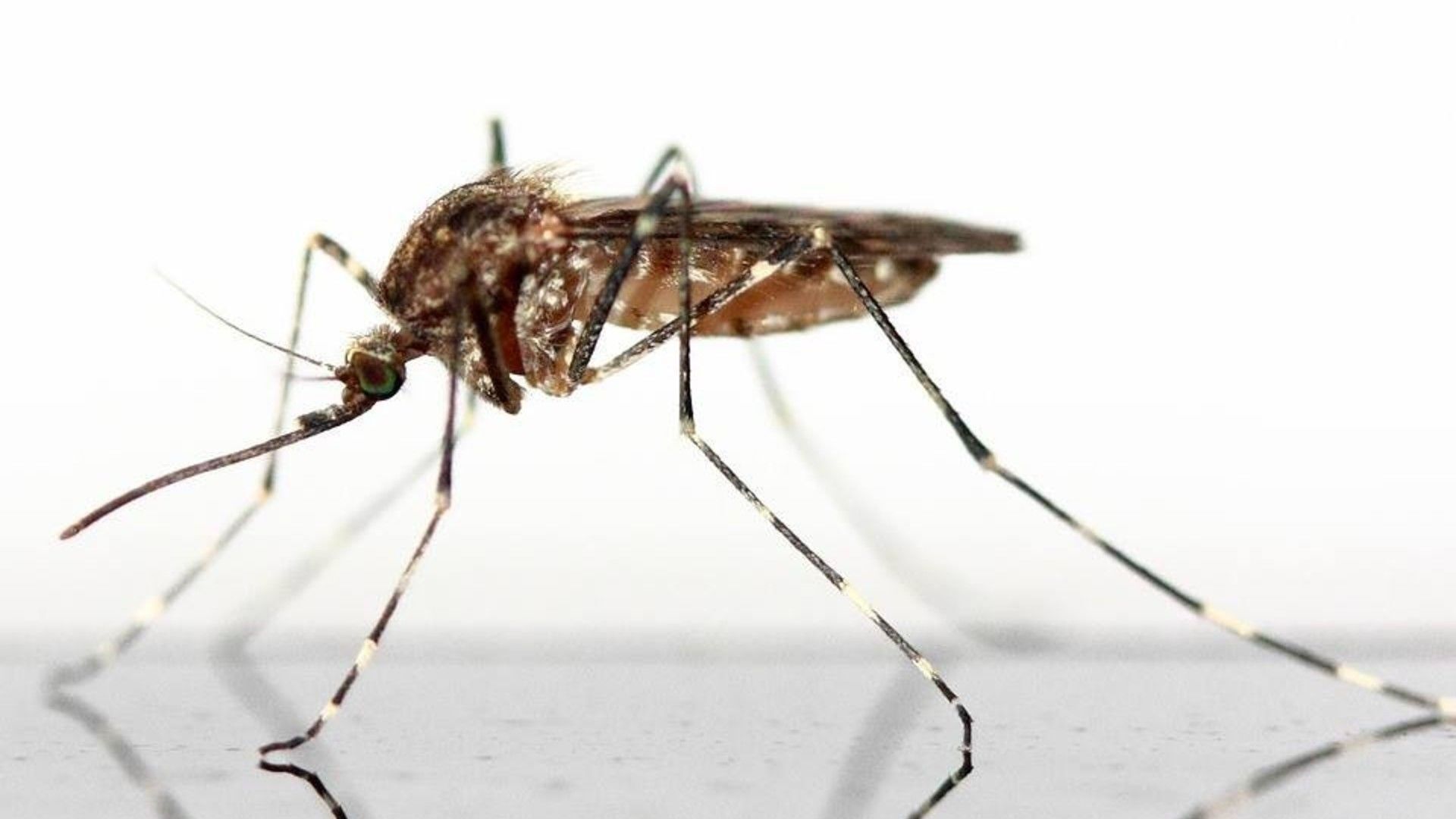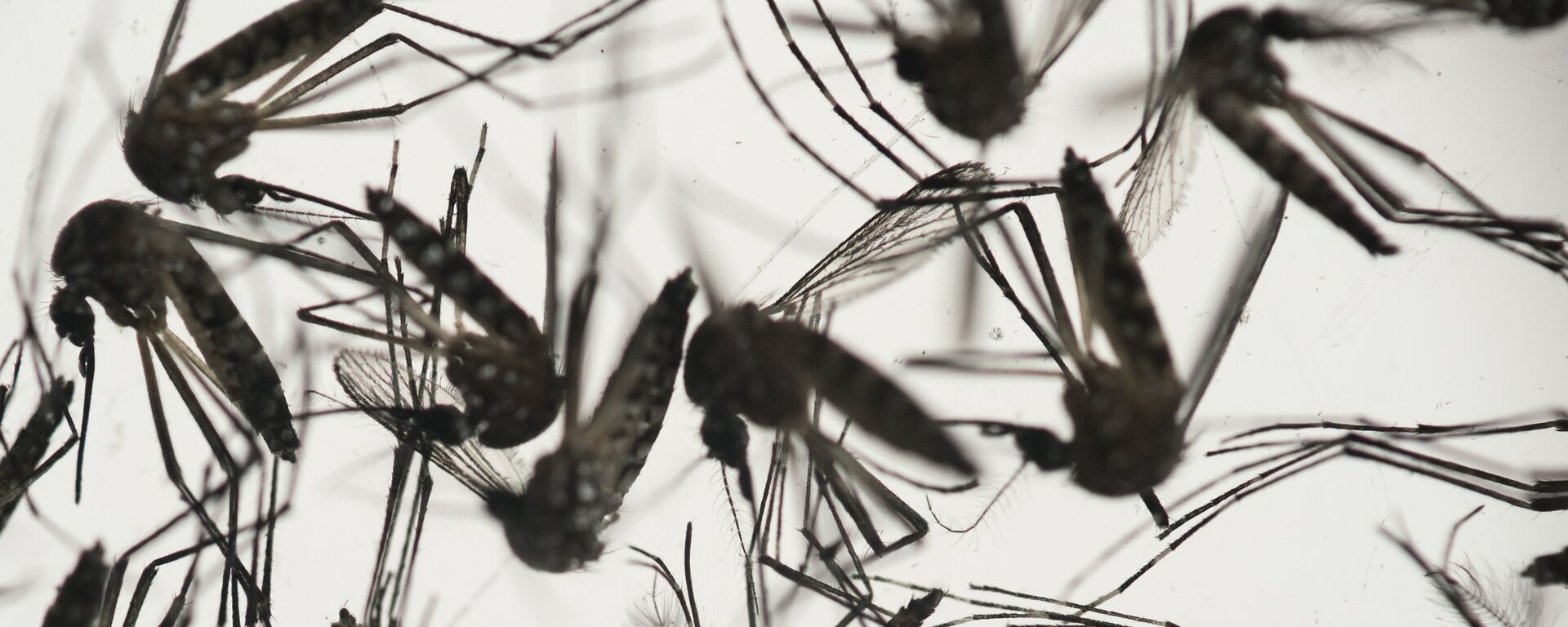https://sputnikglobe.com/20220516/smell-of-blood-mosquitoes-scent-based-host-seeking-mechanism-revealed-1095533309.html
Smell of Blood: Mosquitoes' Scent-Based Host-Seeking Mechanism Revealed
Smell of Blood: Mosquitoes' Scent-Based Host-Seeking Mechanism Revealed
Sputnik International
New discoveries about the mosquito's brain may take researchers closer to fighting dangerous and potentially lethal mosquito-borne diseases, such as malaria... 16.05.2022, Sputnik International
2022-05-16T05:54+0000
2022-05-16T05:54+0000
2022-08-06T13:32+0000
science & tech
newsfeed
mosquito
scandinavia
disease
https://cdn1.img.sputnikglobe.com/img/107962/88/1079628853_0:0:1920:1080_1920x0_80_0_0_c921ce4b6b157db9156f864fc7814205.jpg
An international research crew has identified the mechanism of how female mosquitoes choose their victims using scent.The group, which includes researchers from Princeton University and the Swedish University of Agricultural Sciences (SLU), has revealed that a special area in the mosquito brain is activated whenever they sense the smell of humans.Mosquitoes appear to have different preferences for humans and animals, but it has never been understood why and how exactly they differentiate between the two. With the help of odour samples from humans and different animal species, it has become possible to provide answers to the question.The tricky part, however, was that the human scent consists of hundreds of different substances, and that the same substances, albeit in slightly different proportions, are found in most mammalian scents. In addition, none of these substances are inherently attractive to mosquitoes as such, so the challenge was to determine the exact mixture of components that mosquitoes use to recognise human odour.In the study, the researchers collected odour samples from humans and animals (including dog, hamster, rat, sheep and quail), and analysed how these “odour profiles” are composed and differ. They also developed tools that make it possible to visualise activity patterns in the parts of the mosquito brain that process nerve impulses from all the odour receptors that the mosquito female has on its antennae.“The part of the brain that is activated when stimulated with human scent differs from the part that reacts when we stimulated with animal scents,” Ignell, a researcher in chemical ecology, told SVT.While some mosquitoes species are choosy about whose blood they suck in and can do with virtually any hot-blooded species, some mosquitoes have developed an incredibly accurate “navigation system” to feast exclusively on human blood. These can spread dangerous and potentially fatal diseases such as Zika, dengue and yellow fever.The researchers ultimately made a synthetic fragrance mixture designed to activate the same specific activity pattern in the mosquito brain as the real human scent.The discoveries can therefore also form the basis for the development of new fragrance mixtures that can be used for mosquito monitoring and control measures, thus helping fight mosquito-borne diseases that affect millions of people every year.
https://sputnikglobe.com/20220310/us-government-department-gives-green-light-to-release-millions-of-genetically-modified-mosquitoes-1093749735.html
scandinavia
Sputnik International
feedback@sputniknews.com
+74956456601
MIA „Rossiya Segodnya“
2022
News
en_EN
Sputnik International
feedback@sputniknews.com
+74956456601
MIA „Rossiya Segodnya“
Sputnik International
feedback@sputniknews.com
+74956456601
MIA „Rossiya Segodnya“
science & tech, newsfeed, mosquito, scandinavia, disease
science & tech, newsfeed, mosquito, scandinavia, disease
Smell of Blood: Mosquitoes' Scent-Based Host-Seeking Mechanism Revealed
05:54 GMT 16.05.2022 (Updated: 13:32 GMT 06.08.2022) New discoveries about the mosquito's brain may take researchers closer to fighting dangerous and potentially lethal mosquito-borne diseases, such as malaria and yellow fever, which still affect millions of people.
An international research crew has identified the mechanism of how female mosquitoes choose their victims using scent.
The group, which includes researchers from Princeton University and the Swedish University of Agricultural Sciences (SLU), has revealed that a special area in the mosquito brain is activated whenever they sense the smell of humans.
“We have found out how mosquitoes can distinguish between the smell from humans and other animals,” SLU researcher Rickard Ignell told national broadcaster SVT.
Mosquitoes appear to have different preferences for humans and animals, but it has never been understood why and how exactly they differentiate between the two. With the help of odour samples from humans and different animal species, it has become possible to provide answers to the question.
The tricky part, however, was that the human scent consists of hundreds of different substances, and that the same substances, albeit in slightly different proportions, are found in most mammalian scents. In addition, none of these substances are inherently attractive to mosquitoes as such, so the challenge was to determine the exact mixture of components that mosquitoes use to recognise human odour.
In the study, the researchers collected odour samples from humans and animals (including dog, hamster, rat, sheep and quail), and analysed how these “odour profiles” are composed and differ. They also developed tools that make it possible to visualise activity patterns in the parts of the mosquito brain that process nerve impulses from all the odour receptors that the mosquito female has on its antennae.
“The part of the brain that is activated when stimulated with human scent differs from the part that reacts when we stimulated with animal scents,” Ignell, a researcher in chemical ecology, told SVT.
While some mosquitoes species are choosy about whose blood they suck in and can do with virtually any hot-blooded species, some mosquitoes have developed an incredibly accurate “navigation system” to feast exclusively on human blood. These can spread dangerous and potentially fatal diseases such as Zika, dengue and yellow fever.
The researchers ultimately made a synthetic fragrance mixture designed to activate the same specific activity pattern in the mosquito brain as the real human scent.
The discoveries can therefore also form the basis for the development of new fragrance mixtures that can be used for mosquito monitoring and control measures, thus helping fight mosquito-borne diseases that affect millions of people every year.


